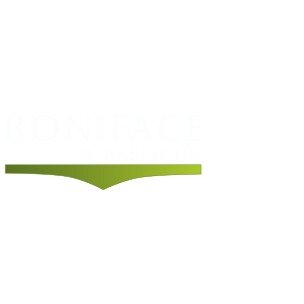Best Conveyancing Lawyers in Rouen
Share your needs with us, get contacted by law firms.
Free. Takes 2 min.
Free Guide to Hiring a Real Estate Lawyer
List of the best lawyers in Rouen, France
About Conveyancing Law in Rouen, France
Conveyancing in Rouen, France refers to the legal process of transferring property ownership from one party to another. This process is governed by French property law, which is known for its structured and formal procedures. The city of Rouen, as part of France, follows national regulations but may also have regional nuances, especially regarding local administrative requirements. Conveyancing typically involves the preparation, verification, and signing of several legal documents, registration with public authorities, and the payment of taxes and fees associated with property transfer.
Why You May Need a Lawyer
Although some aspects of property transfer can be straightforward, there are many situations where legal expertise is essential. These include:
- Ensuring all legal requirements and municipal regulations are met before purchasing or selling property
- Reviewing and negotiating terms in a sale and purchase agreement
- Identifying and managing inherited property issues, such as succession laws or joint ownership
- Resolving boundary disputes or issues with easements attached to the property
- Assisting foreign buyers or sellers who may not be familiar with French property law
- Handling complex transactions involving commercial properties or properties with multiple owners
- Managing property transfers resulting from divorce or separation settlements
A lawyer's guidance can help avoid costly mistakes, ensure all documentation is compliant with French law, and provide peace of mind throughout the conveyancing process.
Local Laws Overview
Conveyancing in Rouen is subject to the French Civil Code and various local regulations. Some key aspects include:
- Intervention of a Notaire: A public official known as a Notaire must oversee the transaction. The Notaire's role is to draft the required deeds, verify the legal standing of the property, and collect applicable taxes.
- Pre-sale Checks: French law mandates several diagnostic tests on the property, such as checks for asbestos, lead, termites, energy efficiency, and natural risks.
- The Compromis de Vente: The preliminary contract or sale agreement (compromis de vente) is legally binding once signed, subject to certain conditions and withdrawal periods.
- Cooling-off Period: Residential purchasers benefit from a ten-day cooling-off period, during which they may withdraw from the purchase without penalty.
- Transfer Registration: Transfers must be registered at the Land Registry (Service de la Publicité Foncière), and taxes such as stamp duty and Notaire fees must be paid.
- Foreign Purchasers: There are no restrictions on foreigners owning property in France, but additional checks on money laundering and funding sources are required.
Frequently Asked Questions
What is the role of a Notaire in the conveyancing process?
The Notaire is a public official responsible for preparing legal documents, ensuring the legitimacy of the transaction, collecting taxes, and registering the property transfer. They act as impartial facilitators for both the buyer and seller.
Do I need a separate lawyer if I already have a Notaire?
The Notaire’s role is neutral, so many people choose to hire their own lawyer for personalized legal advice, negotiation, or to address unique circumstances not covered by the Notaire’s duties.
What costs are involved in conveyancing in Rouen?
Costs typically include Notaire fees, registration taxes, diagnostic reports, and sometimes agency fees if you buy via an estate agent. Legal fees may be additional if you appoint your own lawyer.
How long does the property transfer take?
A typical transaction in Rouen takes two to three months from signing the sale agreement to completion, though timing can vary based on the complexity of the sale.
Can a foreigner buy property in Rouen?
Yes, foreigners are welcome to purchase property in Rouen and throughout France. However, they may face additional administrative checks regarding the source of funds and tax compliance.
What happens if I change my mind after signing the sale agreement?
French law provides a ten-day cooling-off period for buyers of residential property. During this time, you may withdraw from the contract without penalties.
What legal documents are required during conveyancing?
Typical documents include the compromis de vente (preliminary sale agreement), diagnostic reports, the acte de vente (final deed of sale), and registration forms for the land registry.
Are there taxes when buying or selling property?
Yes, buyers must pay registration taxes and Notaire fees, which can amount to approximately 7 to 8 percent of the property’s purchase price. Sellers may also be subject to capital gains tax in certain cases.
What should I check before buying a property in Rouen?
Ensure that all required diagnostics are provided, check the property title for restrictions, verify local zoning and planning rules, and confirm there are no disputes or encumbrances affecting the property.
Can I complete the purchase remotely?
Yes, with proper legal arrangements and a power of attorney, it is possible to complete the transaction without being physically present in Rouen.
Additional Resources
For further assistance with conveyancing in Rouen, the following resources are recommended:
- The local Chambre des Notaires de la Seine-Maritime for information on Notaires in Rouen
- Maison de Justice et du Droit for free or low-cost legal consultations in Rouen
- Service de la Publicité Foncière (Land Registry Office) for property registration queries
- The French government’s official website on property, taxes, and inheritance matters
- Consumer associations (such as UFC-Que Choisir) for property buyer support and guidance
Next Steps
If you need legal assistance in conveyancing in Rouen, it is advisable to start by compiling all documents related to your property or transaction. Research and contact a reputable Notaire in Rouen. If your situation is complex, or if you are a foreign buyer or seller, consider consulting a legal expert specializing in French property law. Prepare a list of questions and concerns specific to your case and seek clarity before proceeding. Engaging professional guidance early in the process can help avoid complications and ensure a smooth transaction.
Lawzana helps you find the best lawyers and law firms in Rouen through a curated and pre-screened list of qualified legal professionals. Our platform offers rankings and detailed profiles of attorneys and law firms, allowing you to compare based on practice areas, including Conveyancing, experience, and client feedback.
Each profile includes a description of the firm's areas of practice, client reviews, team members and partners, year of establishment, spoken languages, office locations, contact information, social media presence, and any published articles or resources. Most firms on our platform speak English and are experienced in both local and international legal matters.
Get a quote from top-rated law firms in Rouen, France — quickly, securely, and without unnecessary hassle.
Disclaimer:
The information provided on this page is for general informational purposes only and does not constitute legal advice. While we strive to ensure the accuracy and relevance of the content, legal information may change over time, and interpretations of the law can vary. You should always consult with a qualified legal professional for advice specific to your situation.
We disclaim all liability for actions taken or not taken based on the content of this page. If you believe any information is incorrect or outdated, please contact us, and we will review and update it where appropriate.









